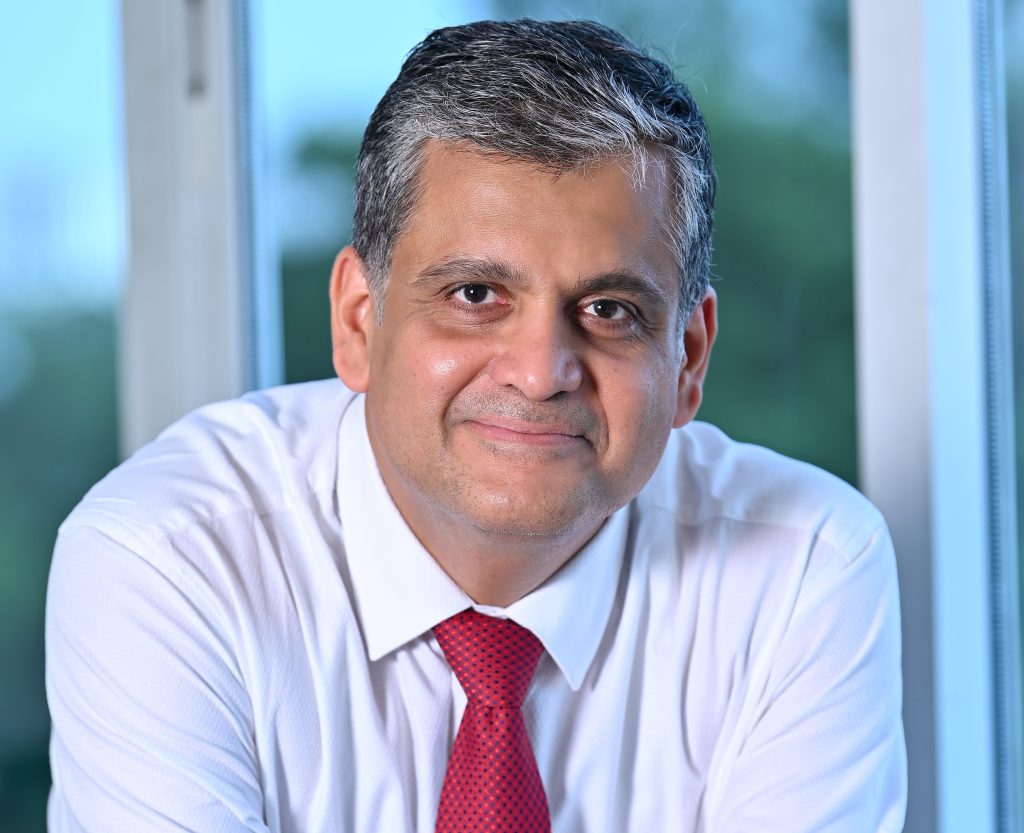India Is No Longer Just Assembling, It’s Moving Towards Owning Technology: Walia

India’s industrial electronics and automation sector is undergoing a remarkable transformation. As the country positions itself as a global manufacturing powerhouse, players like Delta Electronics are at the forefront of enabling this shift—leveraging cutting-edge technologies, fostering innovation, and aligning closely with government-led initiatives such as Make in India and the PLI scheme. With decades of global experience and a strong local footprint, Delta has become a key enabler of smart manufacturing, energy management, and industrial automation solutions across India.
In an interview with IGNITO, Manish Walia, Vice President & Head of Strategic Key Accounts at Delta Electronics, shares his insights on how India’s industrial electronics ecosystem has evolved over the past five years, the impact of government policies, and the critical role of R&D and innovation in building long-term competitiveness. He also reflects on India’s strengths as a global manufacturing destination, the rise of Industry 4.0, and the strategic roadmap required to lead the next wave of industrial growth.
With deep domain knowledge and a future-ready vision, Walia offers a candid and thoughtful assessment of the opportunities and challenges ahead, emphasizing why the coming years will be pivotal for India’s electronics and automation journey.
IGNITO: Delta Electronics has been a leading player in industrial automation and electronics. How do you see the growth of industrial electronics in India over the last five years?
Walia: The growth of industrial electronics and automation in India over the past five years has been nothing short of remarkable. Even before the pandemic, the sector was on a steady upward path. Post-COVID, we have seen a significant acceleration—growth has been exponential in many segments.
Automation has become central to this transformation. Across businesses, from SMEs to large-scale manufacturers, investments in automation technologies are driving productivity and efficiency. The momentum has been consistent, with several segments experiencing high double-digit growth.
An exciting development is India’s growing contribution to global exports in electronics. Take mobile manufacturing, for instance—it heavily relies on advanced industrial automation. That demand drives innovation and expands the industrial electronics space. It’s a promising time for the sector, both domestically and globally.
IGNITO: What are the major trends shaping the future of industrial automation in India, and how is Delta aligning itself with this transformation?
Walia: Industry 4.0 is no longer a buzzword—it’s now a strategic reality. The shift towards smart, connected factories with real-time data, intelligent automation, and seamless decision-making is well underway. Technologies like IoT, AI, and machine learning are now integral.
At Delta, we are actively contributing to this transformation. We are focusing on digital twin technology to simulate and optimize processes before physical implementation—reducing errors and improving efficiency. We’re also prioritizing IT-OT convergence, ensuring that our automation systems offer end-to-end visibility, from shop floor to boardroom.
Our portfolio includes SCARA robots, six-axis robots, and recently introduced collaborative robots (cobots) to work safely alongside humans. We’re delivering integrated solutions that reflect the future of industrial automation in India.
IGNITO: How would you evaluate the role of government initiatives like Make in India, PLI, and industrial corridors in enabling growth?
Walia: The PLI scheme has been a major catalyst, particularly in electronics manufacturing. Post-pandemic, it helped accelerate local production—especially in smartphones—positioning India as a credible global manufacturing hub.
The broader Make in India vision has set a strong foundation for cross-sectoral manufacturing growth. With over 14 sectors under the PLI umbrella, many directly or indirectly support electronics.
Earlier, industrial electronics was overshadowed by consumer and automotive segments. Today, with “Make for the World” in focus, it has become a core growth driver. Industrial corridors have further helped by creating self-sufficient clusters that reduce costs and improve supply chain efficiency. At Delta, our investments—like the 120-acre Krishnagiri facility and our Bengaluru R&D center—are aligned with this ecosystem.
IGNITO: What government incentive has had the most tangible impact on Delta’s India operations?
Walia: While Delta may not be a direct recipient of PLI benefits, the scheme has positively impacted our ecosystem. Many of our customers operate in PLI-backed sectors, which indirectly boosts demand for our automation and electronics solutions.
Our Krishnagiri plant is now an essential link in Delta’s global supply chain, while the Bengaluru R&D center is driving innovation across Indian and global markets. Even without direct incentives, initiatives like PLI and Make in India have significantly shaped our growth strategy in India.
IGNITO: What are the major challenges in scaling up industrial electronics manufacturing in India?
Walia: Two main challenges come to mind: talent readiness and component supply chains.
India has a large base of engineering graduates and technicians, but there remains a disconnect between academic training and industry needs. Fortunately, programs like Skill India and partnerships with academia are bridging this gap. At Delta, we’re seeing more institutes aligning their curriculum with industry standards.
On the supply side, sourcing key components has been a bottleneck. While EMS has grown, we’ve relied heavily on imports. Now, with the Components PLI scheme, we’re building a more resilient ecosystem. Regulatory frameworks like BIS certification are also raising standards, helping the sector mature.
IGNITO: What steps can India take to become a global industrial electronics manufacturing hub?
Walia: India is on the right track, but a few focused strategies can accelerate progress.
- Localize high-value component manufacturing to reduce import dependency.
- Move beyond assembly to design-led manufacturing—the Design Linked Incentive (DLI) is key here.
- Develop integrated industrial clusters—bringing suppliers, testing labs, logistics, and manufacturers together to drive collaboration and cost efficiency.
With stronger execution, India has the potential to be a global leader in both manufacturing and innovation in electronics.
IGNITO: How is Delta contributing to India’s R&D and innovation ecosystem?
Walia: R&D and IP creation are essential for India to move up the global electronics value chain. It’s not just about assembling products—it’s about owning the technology.
Delta’s Bengaluru R&D center, with over 700 engineers (scaling to 2,000+), is at the heart of this effort. Our teams work on smart energy, robotics, automation, and AI—developing solutions for both local and global markets.
We’re also contributing to patents. One of our automation-related patents was fully developed by our India team—a proud milestone. Our goal is to make India a global innovation hub, not just a support center.
IGNITO: Are Indian SMEs ready to embrace Industry 4.0 technologies?
Walia: Larger companies are well on their way, but SMEs—who form the backbone of Indian manufacturing—still face hurdles due to cost and infrastructure limitations.
That said, this segment offers the biggest opportunity. If we can enable SME adoption of automation and digital technologies, it will dramatically improve India’s global competitiveness.
At Delta, we’re helping close the gap through demo centers, solution days, and training partnerships. Our goal is to make smart manufacturing solutions accessible to businesses of all sizes.
IGNITO: What’s your five-year outlook for India’s electronics sector?
Walia: The sector is on a strong growth trajectory, with double-digit expansion expected, especially in manufacturing, infrastructure, and energy. Automation will be a critical enabler across these industries.
Technologies like AI, digital twins, and IoT are becoming mainstream. At Delta, we’re developing solutions that blend hardware, software, and energy optimization to meet evolving industry needs.
High-growth areas will include EMS, EV infrastructure, CNC automation, robotics, and smart factories. Robotics, in particular, will see wider adoption for safety and efficiency improvements.
IGNITO: How does India compare globally in terms of ease of doing business and long-term potential?
Walia: India still lags behind peers like Thailand or Taiwan in operational ease—approvals and logistics can be slower. However, we’re seeing significant improvement, thanks to government reforms.
India’s core strength lies in its young, skilled talent pool and cost efficiency. Policies supporting manufacturing, combined with political stability, offer a strong foundation for growth.
Infrastructure challenges persist, but momentum is positive. Global players—like Apple—investing in India signal growing trust in India as a long-term manufacturing and export hub.




